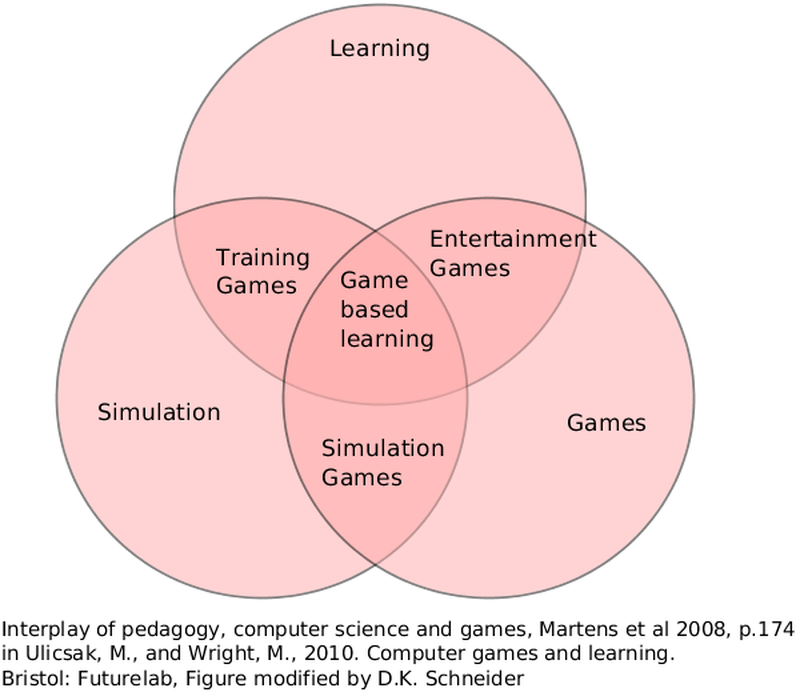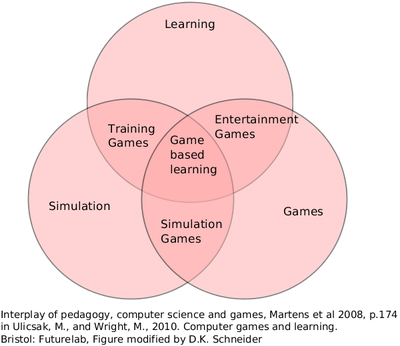In an era where digital technology and educational innovation intersect, Game-Based Learning emerges as a transformative strategy in both corporate training and academic education. Unlike traditional educational methods that often involve passive memorization, GBL introduces an interactive framework that not only captivates but also challenges learners, encouraging a deeper engagement with the material.
But what exactly is Game-Based Learning? At its core, GBL integrates the mechanics of gaming into learning environments, aiming to boost motivation and enhance the retention of knowledge through interactive and competitive elements. This approach is increasingly viewed not just as an alternative, but as a superior modality that can cater to diverse learning styles and complex subject matters in an engaging way.
This comprehensive article of Game-Based Learning will delve into its definition, compare it with traditional training methods through a detailed comparative analysis, and showcase real-world applications and platforms that illustrate its effectiveness. By weaving through examples and expert insights, this article aims to shed light on why GBL is becoming a cornerstone of innovative teaching strategies and how it can be adapted to various educational needs.
Join us as we unpack the multilayered benefits of Game-Based Learning, providing educators, trainers, and learners with a clearer understanding of its potential to transform educational experiences and outcomes.
1. What is Game-Based Learning?
Game-Based Learning (GBL) is an innovative educational approach that integrates the principles of game design and gameplay elements into learning experiences. The goal of GBL is to motivate participants, enhance engagement, and improve retention rates through interactive and immersive challenges that make learning more effective and enjoyable.


Interplay of pedagogy, computer science and games, Martens et al 2008, p.174 in Ulicsak, M., and Wright, M., 2010. Computer games and learning. Bristol: Futurelab, Figure modified by D.K. Schneider
Definition
At its simplest, Game-Based Learning involves using video games specifically designed with educational purposes in mind, or incorporating game elements (like scoring systems, competition, and rules of play) into learning modules. Unlike purely entertainment-focused gaming, GBL strategically uses the allure of gaming to achieve educational outcomes, leveraging the natural human propensity for competition and achievement.
Game Based Learning principles and approach
Game Based Learning is built on several key principles that differentiate it from traditional educational methods:
Engagement: Through compelling narrative and interactive gameplay, learners are drawn into the process, potentially reducing the fatigue and disinterest commonly associated with traditional learning methods.
Feedback and Adaptation: Immediate feedback provided during gameplay helps learners understand their progress and areas needing improvement, allowing for real-time learning and adaptation.
Active Learning: GBL encourages learners to make decisions, utilize critical thinking, and actively engage with content, promoting deeper learning and retention.
Goal-Oriented: Each game in a GBL environment has specific objectives that align with educational goals. Players strive to achieve these goals within the context of the game, which translates to achieving learning outcomes.
Safe Failure: GBL creates a safe space for failure where learners can experiment and take risks without the fear of real-world repercussions. This aspect of gaming is crucial for learning from mistakes and developing resilience.


While the traditional educational models focus on passive learning through lectures and rote memorization, Game Based Learning introduces an active learning landscape that challenges these norms. But why exactly should educators and trainers consider pivoting towards this innovative approach? The next section delves into the comparative advantages of Game Based Learning over traditional training methods, highlighting how its dynamic capabilities can address some of the intrinsic shortcomings of conventional learning settings.
2. Comparative Table: Game-Based Learning vs. Traditional Training
Traditional training has been the cornerstone of educational and professional development for decades; however, as the world evolves, so too do our learning methodologies. This next section offers a comprehensive comparison of Game Based Learning and traditional training, providing educators, trainers, and learners with clear insights into the benefits and limitations of each approach.
Understanding the distinctions and advantages associated with GBL compared to traditional methods can help stakeholders make informed decisions about which strategies best fit their educational goals and organizational needs. The following table breaks down key aspects of each learning method across various dimensions such as engagement, adaptability, feedback mechanisms, and cost-effectiveness. Each feature is analyzed to showcase why GBL might offer a superior alternative for modern learning environments.
| Game-Based Learning | Traditional Training | |
|---|---|---|
| Engagement | High | Low |
| Learning Style Adaptation | High | Low |
| Feedback | Immediate | Delayed |
| Memory Retention | High | Moderate |
| Motivation | High | Variable |
| Scalability | High | Variable |
| Flexibility | High | Low |
| Cost-Effectiveness | Potentially High | High |
| Risk of Failure | Low | High |
| Skill Application | Direct | Indirect |
Game Based Learning is an educational approach that uses games to facilitate learning. Compared to traditional training, Game Based Learning offers several advantages:
Increased Engagement: Educational games can boost student engagement by over 50%. Students are more likely to actively participate in learning when they find the material engaging and interactive.
Active Learning: Instead of being passively exposed to information, learners are actively involved in the learning process by making decisions and interacting with the content.
Immediate Feedback: Games often provide real-time feedback, allowing learners to immediately understand and correct their mistakes.
Information Retention: Students may retain up to 90% of what they learn when taught via a game, compared to 10% in a traditional lecture setting.
Skill Improvement: Educational games can enhance students' problem-solving, critical thinking, and decision-making skills.
Personalized Learning: Games can often be tailored to each learner's skill level, offering a personalized learning path.
Real-life Situations Simulation: Games can simulate real-life situations, allowing learners to practice in a risk-free environment.
Promotes Collaboration: Some games are designed to be played in teams, which can help develop collaboration and teamwork skills.
Stress Reduction: Learning through play can reduce the anxiety associated with failure, as mistakes are just part of the game.
Flexibility: Game-based tools can often be accessed anywhere and anytime, offering great flexibility to learners.
These figures are estimates based on various studies and research in the field of education. It's important to note that Game Based Learning is not suitable for all situations or all learners.
3. Game Based learning use cases and implementation
Game-Based Learning (GBL) is a versatile educational tool that transcends traditional boundaries of learning and training. To illustrate the practical applications and advantages of GBL, we focus on two specific simulations: the Beer Game and the Lean Manufacturing Game. These games are exemplary in demonstrating how Game Based Learning can be integrated effectively across different sectors and scenarios.
Who uses Game-Based Learning?
Business Schools and Universities: The Beer Game is frequently used in business education to help students understand supply chain management dynamics and inventory control. Similarly, the Lean Manufacturing Game is utilized to teach principles of lean operations and process efficiency.
Corporations: Companies in the manufacturing and production sectors employ the Lean Manufacturing Game for employee training to optimize production processes and reduce waste. The Beer Game serves as a training tool in corporate workshops to enhance understanding of complex supply chains among employees.
Consultants and Trainers: These professionals use these games to provide hands-on learning experiences during workshops and training sessions, making abstract concepts tangible and understandable.
When are these Game-based learning methods most effective?
By leveraging interactive games like the Beer Game and the Lean Manufacturing Game, organizations can create immersive learning experiences that not only impart essential knowledge but also foster critical thinking and strategic planning skills. Let's delve into how these games are implemented effectively across different stages of professional engagement and development.
Orientation and Onboarding: New employees are often introduced to these games during their initial training phase, helping them grasp key industry concepts and workflows early in their careers.
Professional Development Workshops: Both games are staples in continuous professional development programs to keep skills sharp and knowledge updated.
Strategic Planning Sessions: The Beer Game and Lean Manufacturing Game are used during strategic planning to simulate potential changes in operations and predict their effects on the supply chain and production.
Bose successfully trained +80 employees from 5 regions during its sales seminar.
Playing the Zensimu's Beer Game made our seminar an unforgettable experience. It was so easy to organize, and we believe it had a very positive impact on all the teams worldwide.


Where are these games implemented?
In-Person Workshops: Both games are popular in interactive, face-to-face training sessions where participants benefit from real-time feedback and group dynamics.
Online Training Platforms: Adapted for online play, these games reach a global audience, allowing remote teams to experience collaborative and competitive learning virtually.
University Classrooms: Academic institutions integrate these games into their curricula, enabling students to experience theoretical concepts in simulated environments that mimic real-world scenarios.
4. Game-Based Learning Examples
Game-Based Learning has been successfully implemented in various sectors, demonstrating its flexibility and wide-ranging applicability. Here are some illustrative examples:
The Beer Game
Context: Originally developed at MIT, the Beer Game is a simulation that demonstrates supply chain dynamics. It is particularly popular in business schools and among businesses that want to understand the complexities of supply chains in a visceral way.
Application: In a classroom or workshop setting, participants play roles in a beer supply chain, from production to sales, to learn about the bullwhip effect and inventory management.
Benefits: This game helps players understand the impact of silo thinking and poor communication in supply chains, encouraging more holistic and strategic business planning.
The Lean Game
Context: This game is used to teach principles of lean manufacturing and operations management. It simulates a production environment where players must identify and eliminate waste to improve efficiency.
Application: Often used in manufacturing and production companies during training sessions to help employees grasp lean principles by putting them into practice in a risk-free environment.
Benefits: Players learn to streamline processes, enhance productivity, and reduce costs, which can lead to significant improvements in real-world business operations.
Re-Mission
Context: A game developed for young cancer patients designed to teach them about their disease and treatment.
Application: Played by patients to help them understand the importance of adhering to their treatment regimen.
Benefits: Increases knowledge and compliance with treatment protocols, and improves patient outcomes through empowerment and engagement.
5. Conclusion
In conclusion, Game-Based Learning is more than just an educational trend; it's a potent and transformative approach that leverages the engaging power of games to facilitate deeper learning and retention. This method not only makes education more interactive and enjoyable but also addresses diverse learning needs and styles with its adaptability and personalized feedback mechanisms. By incorporating elements of competition, challenge, and immediate rewards, Game Based Learning fosters an environment where learning is both effective and stimulating.
As we have seen, Game Based Learning is applicable across a wide range of settings, from academic classrooms to corporate training and beyond, proving its versatility and efficacy in enhancing educational outcomes and equipping learners with the skills they need in a dynamic and ever-evolving world. Educators and trainers are encouraged to explore and embrace Game-Based Learning, not only to enrich their teaching methods but to truly transform the educational experiences of their learners.
With its ability to simulate real-world scenarios, promote active participation, and provide a safe space for experimentation, Game Based Learning stands out as a particularly valuable tool in today’s educational landscape. It’s clear that as we move forward, Game-Based Learning will play a crucial role in shaping future learning paradigms, making education more engaging, relevant, and impactful for everyone involved.
Would you like to test our Game Based Learning simulations?
Book a demo and get an overview of all possibilities of our Beer Game and Lean Game!




